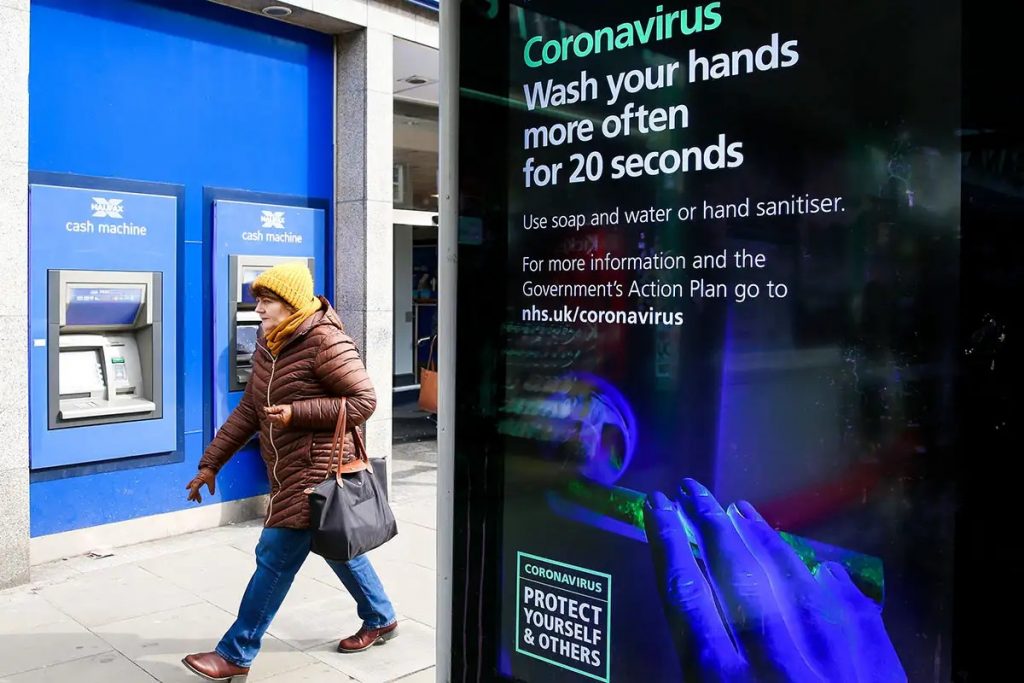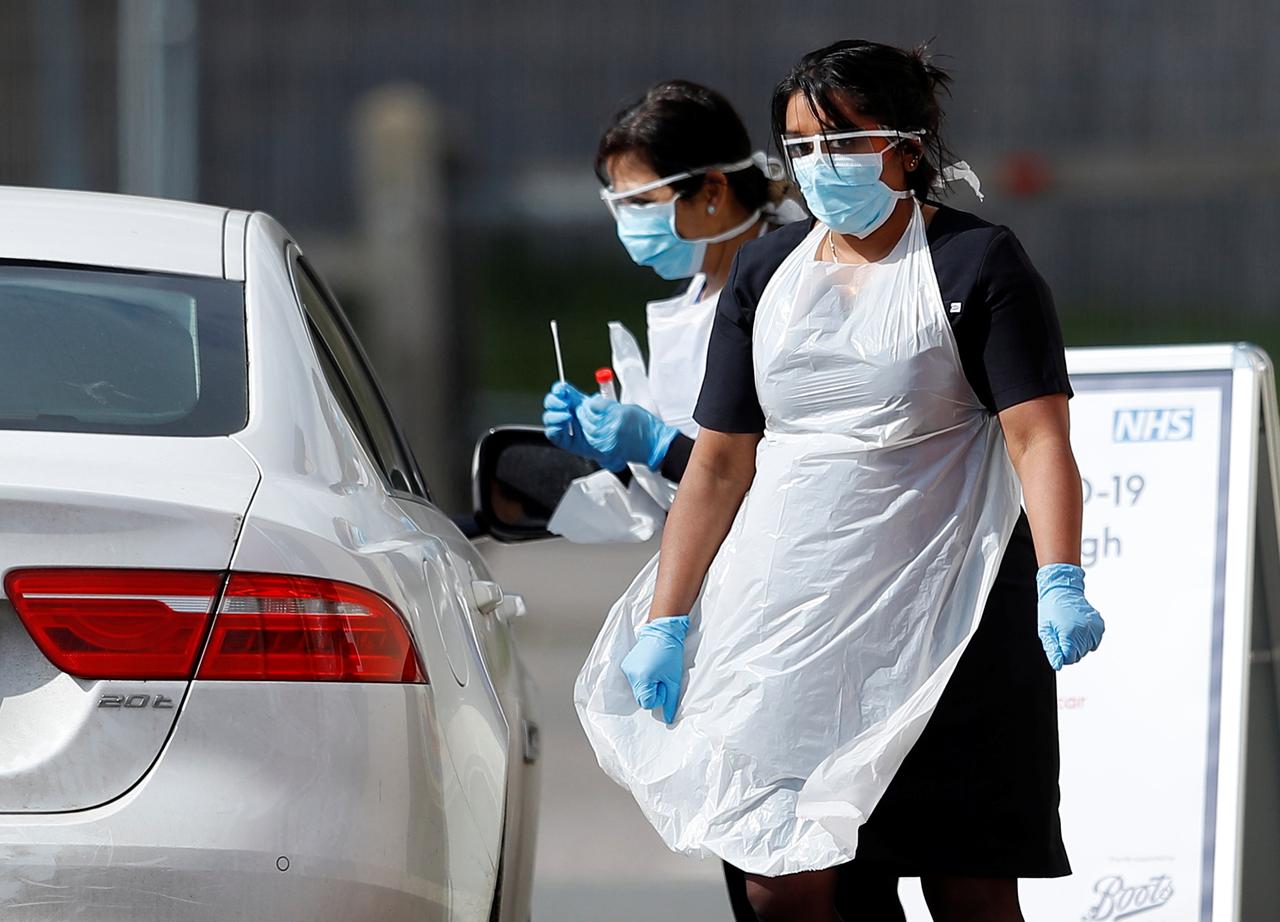In the middle of an unthinkable crisis, all we can do is take on each challenge as we find it. But does that mean we will fail to prepare for a very different Britain after? What is only a week, seems to have lasted forever, but does that make thinking about the future too hard?
This is a rollercoaster alright. For those at the health sharp end, every tiny choice will have consequences. Carers and medics who aid those suffering do so knowing that the chances they will pay a price for it are uncomfortably high. Every one of us is praying for a friend in scrubs to get through this. Every one of us now has a COVID-19 infected person close to us fragile enough to worry. A solution must be found.
And the economic tsunami has also thrown us from safety. The Budget was just 19 days ago. The time from then, to the announcement of national wages support for COVID-19 hit businesses seemed to contain a year’s worth of events, but it passed in a couple of weeks. Every family in Britain has a member whose livelihood could be in shreds. Everyone of us has a friend with a business that could end in the next six months. Most of us know a family looking bankruptcy in the face.

Some people have said that the economic and health imperatives are pushing against each other. They think that in this battle against a virus so infectious that markets cannot function in any normal way, we can only save lives or livelihoods. One or the other.
This is wrong. Economic means serve human ends. Markets do not have goals separate from us, competing against human priorities, they are the inventions of humans, made to serve us. Rather, the urgent problem now is that economies — like us all — are operating in fundamentally new circumstances — and circumstances no one could have really prepared for. It is a shock, in the true sense of the word.
Working out how to deal with negative shocks is what much of economics is really all about. How do you give individuals the best chance in a mass downturn? What can Governments do to make a difference? To find out, economists rely on knowledge of the past. They test hypotheses against past data. But for each generation, shocks will come that the past has not prepared them for. In the absence of reliable predictions, all we can do is rely on simple principles, and our values.
Clearly COVID-19 is our test. All we have is simple principles and our values. The science of finding a treatment and a vaccine is one herculean task ahead. Keeping everyone housed, supplied with food and the necessities of life is another. It’s not just experts we need, but good bureaucrats too. We need those people within government, companies, charities and every group be they large or small, who are good at getting things done. We need people who are driven by the practical needs of others to innovate, and mobilise the country.
Then the next economic task is to work out how to vaccinate the UK against worse future consequences that could be over the horizon if short-term disaster leads to long-term injury. Because one thing we know from the past is that whilst markets always move on and downturns become upturns, short-term recessions leave long-lasting scars.
The difference in comparison to recent downturns — post the financial crash, for example — is that this shock comes entirely from outside the economic system. And because the cause of bad economic events is not internal to the economy, it feels as though the best response is to wait and try to return to normal as soon as we can. So, for now, what we are trying to do is keep the economy on ice, to give us the best chance to fight the disease. But we can only keep the freeze going like this for a relatively short time. It is a very expensive refrigeration, in financial terms and the cost to each of us compared to the choices in life we would rather be making.
Before long, we are going to have to start making some big decisions. Should we return to normal? Or do we need to reshape our economy in order to recover?
The current crisis is revealing some very important truths about the UK economy and where it has structural weaknesses. The extent of fragile work, bad bosses, and the potential for exploitation and all-round unhappiness with employers is on show. Just check Twitter. The Chancellor of the Exchequer has correctly followed trade union advice to try to keep as many people on the books of their employer as possible, but the labour market turbulence is revealing how many employers would cast off any responsibility for the people who make their profits if they could. How long before our country realises that the trade union movement that scripted the response to this disaster ought to be allowed to reshape the labour market in the long-term, too? How long before we realise that being powerless in the face of a Mike Ashley or a Phillip Green isn’t just a COVID-19 problem, but a long-term structural problem that must be fixed.
The necessary ice on our economy will be melted one day, but do we really want to get back to normal? Do we want to go back to armies of construction workers self-employed bearing all the risk of a shock or a downturn, or a sudden fall or illness? This in the end is the problem. When — in the middle of a horrendous pandemic — some companies still pay out millions in dividends, whilst those with much lower incomes must take a cut of the losses, that is the wrong people bearing the risk. When construction workers are all ‘self-employed’ it means that the cost of cancelling construction projects fall on them, as individuals. The corporate structure designed to bear this risk then escapes it, profits intact. The same goes if you work on zero hours in retail or hospitality. Or in a care home.
The situation worsens if you think about the social security system. Ten years ago, after the global financial crisis, George Osborne blagged us that the UK was poorly placed to cope with the crash because we had overspent on benefits. As a result, support for families through tax credits was cut, child benefit frozen, and the risk associated with another recession was transferred from the broad shoulders of Her Majesty’s Treasury to the back of every single parent, every family of more than three kids, and every low paid worker in the UK.
Given this virus, it is obvious that this transfer of risk was an egregious mistake. To rebuild, we need to redistribute risk. Given the points of vulnerability in our lives, what are the places where the Government must bear the risk? Where is acceptable to let individuals do so? What are the principles that apply when dealing with the major threats that none of us can tackle alone? We must maximise the amount of autonomy that people have, consistent with economical and social co-operation they need to stabilise themselves when life goes wrong.
There are other longer-term risks too — climate change, technology, our collective security — which must provide the frame for our economy to operate within. The risk must be born collectively, given that any individual, any community alone would be crushed, the only response is to take general responsibility for the safety and welfare of all. These questions may seem far off in the current crisis. But our economy and our country will be permanently changed by the choices we take now and in the recovery period. So why not start thinking about how the UK can emerge from COVID-19 better, more determined, with a healthier attitude towards the Government’s responsibilities to its citizens.
For every family in Britain this will be the most trying and testing time. The worry, and for far too many, the reality, of a sickness for which there is no vaccine. A feeling of dread that is sitting with each of us. For those who experience the very worst of it, this will be a lifelong trauma. Practically every aspect of our life is now turned inward. What were full lives are now housebound. Children who should be exploring the world are locked away for their own safety. For women, home is not always a truly safe place and this forced confinement can mean a reversal of freedom, an unwelcome return to domestic life.
The only answer to confinement is bigger thinking. Whilst we cannot physically explore our country, we can mentally explore what our country should be. More equal, more generous, more enriching countries in the end are not those where people fret that their human needs are in competition with the needs of the market. Rather, it is where markets are in their proper place, in service of the human ambition to live fully and have others do likewise. I hope that we will all get to the point where we can take a collective decision about the future of our country. It seems far away just now, but I hope that it won’t always feel that way.
